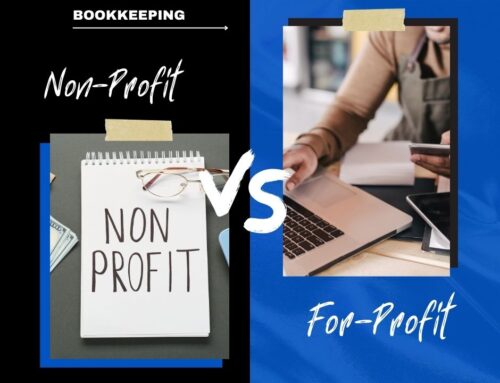Nonprofit organizations are still businesses with income and expenses that must be properly recorded for accounting purposes. However, nonprofits have several unique items they must track for their bookkeeping that for-profit businesses don’t. Organizing a nonprofit’s bookkeeping requires a unique set of accounting rules that help demonstrate their appropriate use of resources and assets for charitable purposes. Part of this organization focuses on what nonprofits typically track for bookkeeping.
Monetary Donations
This one is relatively obvious and hopefully all nonprofits already do this, but tracking and recording these monies for bookkeeping purposes may not be as straightforward as you think. A nonprofit may need to record monetary donations differently depending on why they received them. Straight cash donations are generally counted as income on financial statements but may be listed as restricted or unrestricted.
- Restricted means the donor gave the nonprofit the money for a specific program or activity, so the money can’t be used for any other purpose. These monies and what they were used for must be tracked separately to ensure the money was used accordingly. The donor may also have placed a time restriction on the donation.
- Unrestricted means the donor didn’t want the money earmarked for anything specific and the nonprofit can use it for whatever it needs. These funds often go towards operating expenses and are lumped together with other unrestricted donor funds, which means they don’t have to be tracked separately.
Monies received for certain activities are tracked on the nonprofit’s Statement of Activities as revenue under the appropriate account. These may include monies collected for membership dues, classes, etc. Money received from fundraisers may be tracked and recorded as both event revenue for exchange transactions and contribution revenue for non-exchange transactions. If the money received is from the sale of donated goods, such as for a nonprofit thrift store, the nonprofit must first track and record the fair value of these contributions and add them to its inventory, then record the actual sale as revenue. There’s more to donated money than meets the eye, and it’s one of the many reasons nonprofits need an experienced nonprofit bookkeeper tracking these things for them.
In-Kind Donations
Non-cash or in-kind donations cover several types of contributions that must be tracked and recorded appropriately. While nonprofits often keep excellent track of donated dollars, they frequently overlook the importance of tracking in-kind donations that they would otherwise have had to purchase. In-kind donations can include tangible goods for resale or fundraisers or intangible services, which both have value.
Nonprofits should have a separate income account in their bookkeeping to track and record non-cash donations. In this account, the nonprofit records the donation’s fair market value. If it’s donated materials, ask the donor to provide you with the fair market value of these materials. If they can’t provide an amount, the IRS does allow nonprofits to determine the fair market value of these goods based on comparable goods on the market if the value is below $5,000. If the value is above this amount, the nonprofit must have the donation formally appraised by an expert.
Tracking and determining value is similar if a professional, such as an attorney or skilled tradesperson, donates their time and services to the nonprofit. Ask the professional what they’d normally charge for their services. If they have a standard hourly rate, multiply it by the number of hours they donated and record it in the appropriate income account. However, some volunteer hours are treated differently.
Volunteer Hours
The current estimated value of each volunteer hour on a national scale is $28.54. However, unless the volunteer is providing a specialized skill, such as those you’d receive from a licensed professional, these hours don’t qualify as in-kind donations. It’s still important to track these hours internally, but they may not go on formal bookkeeping records.
To include volunteer service in compilations prepared by an accountant, it must follow generally accepted accounting principles. GAAP only specifies rules for two situations when volunteer time is tracked for bookkeeping. The first is volunteer time used to create or improve a nonfinancial asset, such as skilled or unskilled volunteers building a new facility for a nonprofit. The second is the previously mentioned in-kind donation of time from a professional with specialized skills.
While a nonprofit might not track volunteer hours for external bookkeeping documents, it’s still important to track this data internally for budgets and financial reports. This data demonstrates the true cost and value of a nonprofit’s programs and highlights major needs for program growth, such as new facilities, more volunteers or increased staffing. It can also be used to demonstrate the incredible impact a nonprofit has within a community and how much help they generate within its service area. Even more importantly, the data can generate more funding and attract new volunteers. Tracking volunteer hours can also help nonprofits meet match requirements, reduce liability and improve financial statement presentations.
Fundraising Expenses
Fundraisers present unique bookkeeping challenges. Expenses from these events must be carefully tracked and reported on a Statement of Functional Expenses under supporting activities, not program services. These expenses are often underreported or reported incorrectly, which makes it difficult to track how much revenue from the corresponding fundraiser was used to offset expenses. Track all types of related expenses, including obvious expenses like food and entertainment and less obvious expenses like advertising, printing costs for flyers, postage for mailing invitations and other unique costs tied to the event.
Use an Experienced Nonprofit Bookkeeper
If you’re trying to manage your nonprofit books on your own or using a bookkeeper who doesn’t have experience in nonprofit bookkeeping, it could lead to significant short-term and long-term issues. Navitance specializes in nonprofits and helps new and established organizations set up appropriate accounting systems that allow them to track whatever needs to be tracked. Our extensive financial experience and knowledge of nonprofit accounting ensure your nonprofit’s books are in good hands. Contact us at 978-809-3282 to discuss our nonprofit bookkeeping services or request a consultation online.





